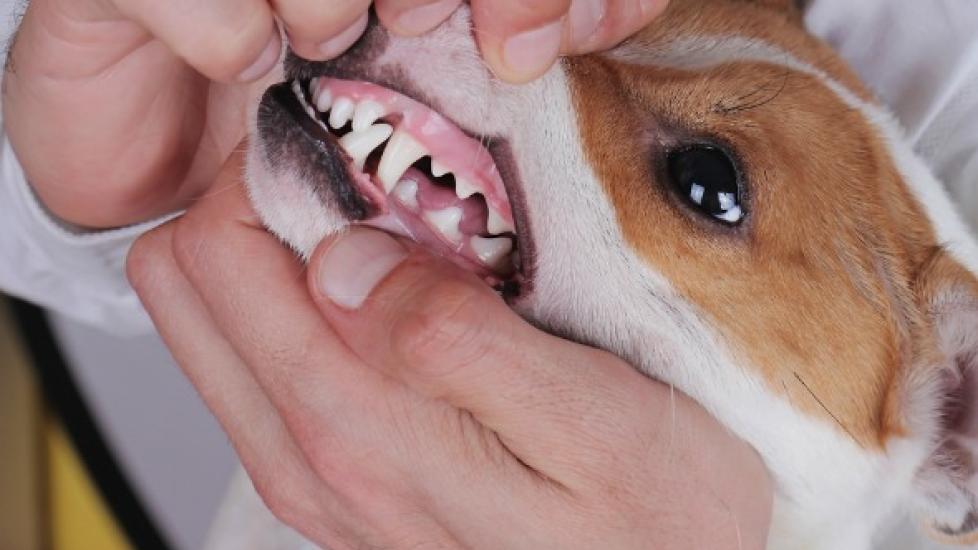Title: Understanding Chronic Mouth Inflammation and Ulceration in Canine Companions
Introduction:
A canine’s mouth is a complex ecosystem, home to various bacteria that play essential roles in digestion. However, when the delicate balance of this environment is disrupted, chronic inflammation and ulcerations may occur. These conditions not only cause discomfort for our furry friends but also pose potential risks to their overall health. This article aims to shed light on the causes, symptoms, diagnosis, treatment options, and preventive measures associated with chronic mouth inflammation and ulceration in dogs.
Causes:
The causes of chronic mouth inflammation and ulceration are multifaceted and often involve a combination of factors. Some common triggers include poor oral hygiene, which leads to plaque buildup and subsequent gum disease; dental trauma from chewing hard objects or rough play; certain medications known to irritate the mucous membranes; allergies; nutritional deficiencies; and underlying systemic diseases such as immune-mediated disorders, infectious agents like viruses or fungi, or even cancer. It is crucial to identify the root cause(s) through comprehensive diagnostic tests to provide effective treatment and prevent recurrence.
Symptoms:
Dogs suffering from chronic mouth inflammation and ulceration exhibit signs such as excessive drooling, pawing at their mouths, reluctance to eat, bad breath, bleeding gums, and sometimes fever. Owners should be vigilant about these indications and seek veterinary attention promptly if they suspect any issues with their pet’s oral health. Early detection improves outcomes and reduces long-term complications.
Diagnosis:
To diagnose chronic mouth inflammation and ulceration, veterinarians rely on a thorough physical examination followed by advanced diagnostics including blood work, biopsies, X-rays, and possibly endoscopy. A detailed medical history provided by the owner can be invaluable in guiding the vet towards an accurate diagnosis. Once confirmed, a personalized treatment plan tailored to the dog’s specific needs will be developed.
Treatment Options:
Management of chronic mouth inflammation and ulceration typically involves a multidisciplinary approach. Veterinarians might prescribe antibiotics or anti-inflammatory drugs to control infection and reduce swelling. Pain management protocols using nonsteroidal anti-inflammatory drugs (NSAIDs) or other analgesics may be necessary during recovery periods. Frequent dental cleanings under anesthesia, along with regular brushing at home, help maintain good oral hygiene. In some cases, dietary adjustments or the use of supplements containing omega-3 fatty acids could contribute to healing processes due to their anti-inflammatory properties. Surgical intervention might be warranted if tumors or foreign bodies are identified as causative factors.
Prevention:
Regular check-ups with your veterinarian are key to preventing chronic mouth problems in pets. Daily toothbrushing with specially formulated pet toothpaste helps keep bacterial populations balanced and prevents plaque formation. Providing soft food or moistening dry kibble can minimize chewing stress on sensitive teeth and gums. Additionally, avoiding overly abrasive toys and monitoring what your dog ingests outside of mealtimes contributes to maintaining optimal oral health. Regular professional cleaning every six months is recommended for most adult dogs, especially those prone to periodontal issues.
Conclusion:
By recognizing the importance of oral health in our canine companions and taking proactive steps towards prevention, we can significantly improve their quality of life while reducing the risk of more severe health consequences down the line. Through diligent care and regular veterinary visits, owners can catch early warning signs before they escalate into chronic conditions affecting their beloved pets.
